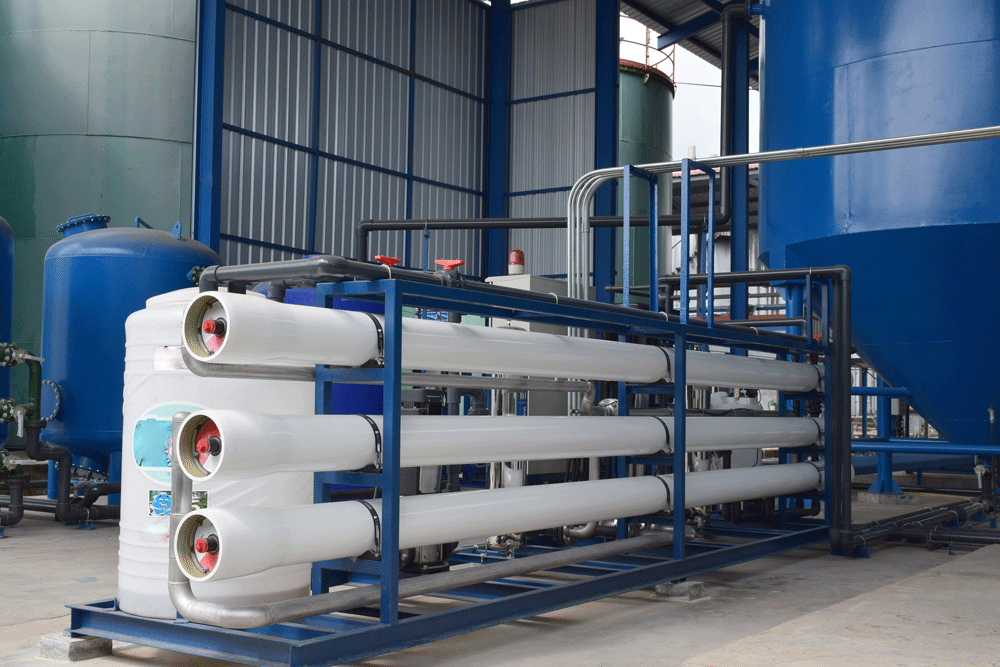GCC prioritises water projects

Energy efficiency and expanding renewable capacity drive independent water projects across the region
Oman Power & Water Procurement Company has issued the letters of award for two seawater reverse osmosis (SWRO) desalination plants that would have a total combined capacity of 400,000 cubic metres a day (cm/d).
The 300,000 cm/d Ghubrah 3 independent water project (IWP) will be the sultanate’s largest desalination plant once completed.
Compared to its peers, Oman has the most experience in terms of IWPs, having awarded the contract to develop the Ghubrah IWP to a team of Japan’s Sumitomo, Spain’s Cadagua and Malaysian’s Malakoff in 2013. Six other IWP contracts have been awarded in the intervening period.
IWP projects and prices in the GCC
| Country | Project | Tariff ($cents/cm) | Capacity (cm/d) | Developer | Investment ($m) | Award year |
| Saudi Arabia | Rabigh 3 | 0.53 | 600,000 | Acwa Power, Saudi Brothers Commercial Company | 750 | 2018 |
| Saudi Arabia | Shuqaiq 3 | 0.52 | 450,000 | Marubeni, Abdul Latif Jameel | 500 | 2019 |
| UAE | Taweela | 0.495 | 909,000 | Acwa Power | 847 | 2019 |
| Saudi Arabia | Yanbu 4 | 0.473 | 450,000 | Engie, Mowah Nesma (local) | 850 | 2020 |
| Saudi Arabia | Jubail 3A | 0.413 | 600,000 | Acwa Power, GIC, Al-Bawani (local) | 650 | 2020 |
| UAE* | Hassyan (120MIGD) | .278 | 545,000 | Utico | na | 2020 |
| UAE* | Hassyan (180MIGD) | .261 | 818,000 | Utico | na | 2020 |
| Oman | Ghubrah 3 | na | 300,000 | GS Inima, Sogex, AlJomaih | na | 2020 |
| Oman | Barkah 5 | na | 100,000 | GS Inima | na | 2020 |
| Oman | Ghubrah | na | 190,000 | Sumitomo, Cadagua, Malakoff | 320 | 2013 |
*One project but prices sought for two different capacities; Sources: MEED, MEED Projects
Saudi Arabia and the UAE awarded their first IWP contracts in 2018 (Rabigh 3) and 2019 (Taweelah SWRO). However, the scale of these projects is unprecedented and has led to them breaking world records in terms of tariffs.
Unprecedented scale and tariffs
An Acwa Power-led team offered 0.53 $cents a cubic metre ($cents/cm) for the Rabigh 3 scheme. The Saudi developer a few months later offered 0.495 $cents/cm for the Taweelah project in Abu Dhabi.
This year saw a continuation of the downward trajectory for water production costs, with consortiums led by France’s Engie and Acwa Power offering 0.473 $cents and 0.413 $cents, respectively, for Yanbu 4 and Jubail 3A.
The Hassyan IWP in Dubai promises to set a new record, with UAE-based Utico offering a low bid of 0.278 $cents/cm for the 120 million imperial gallons a day (MIGD)capacity and an alternative offer of 0.261 $cents/cm for the alternative capacity of 180MIGD.
While Hassyan IWP’s final capacity has yet to be decided, the final capacity will not change the fact that it will be producing the region’s cheapest potable water to date.
This makes tariffs for future projects a major development to be watched, given that Saudi Arabia plans to build a dozen more IWPs under the Saudi Water Partnership Company’s latest seven-year statement.
Abu Dhabi is also planning an even bigger SWRO plant than Taweelah, which is expected to be tendered in 2021.
Notably, the IWP contracts awarded in 2018-20, including those that are expected to be signed by the end of 2020 or early next year, account for a total capacity of 3.3 million cm/d. Those that have been officially awarded during this period account for a total investment of $3.6bn.
The drive to decouple power and water production to reduce energy consumption will continue to provide the impetus for IWP implementation. In addition to securing cheaper water supply, such a move will also increase the flexibility of the grid, which becomes all-important as countries around the region push their renewable energy programmes, particularly solar photovoltaic and wind.



